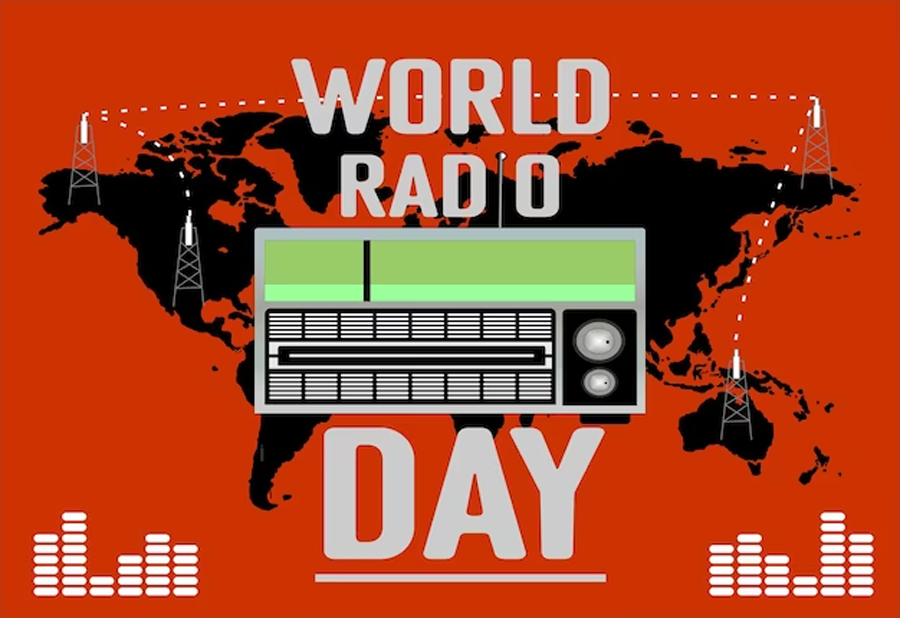MESSAGGIO DI A AZOULAY, DIRETTORE GENERALE UNESCO, PER LA GIORNATA MONDIALE DELLA RADIO
Martedì 13-02-2024
Message from Ms Audrey Azoulay, Director-General of UNESCO, on the occasion of World Radio Day, 13 February 2024
On this World Radio Day, we celebrate not only the history of radio, but also its central role in our societies, now and in the years to come. The year 2024 marks a milestone in the history of this medium: it is the year we celebrate the centenary of the first live radio broadcast of the Olympic Games, on the eve of the next Games in Paris. This milestone reminds us that, since its creation at the end of the nineteenth century, radio has always been with us, bringing us together around powerful moments and shared emotions. And so, for over a century, it has been informing us, entertaining us,and also educating us, as this year's theme underlines.It is all the more true today: despite the growing influence of the Internet and social networks, radio continues to be a prime source of information and entertainment – it is estimated that over 4 billion people listen to it. Radio is also the medium that reaches places others do not: while almost a third of the population did not have a decent Internet connection in 2023, a proportion that rises to half of the population in rural areas, radio is more inclusive and accessible, particularly in crisis situations. For example, in Afghanistan, following the decision – which UNESCO immediately and firmly condemned - to deprive Afghan girls and women of their fundamental right to learn and teach, the Organization has put in place what is in effect education over the airwaves, supporting Radio Begum in particular. This radio station, run by Afghan women for Afghan women, provides literacy courses and gives them a voice.Radio can also be the voice of the voiceless, enabling all individuals and communities to express themselves, and to bring the diversity of their cultures to life. That is why UNESCO supports and encourages community radio all over the world.As we see it, radio is more than a technical means of broadcasting: it embodies a certain idea of information, cultural diversity and education for all; we could go so far as to say that radio can and must be a humanist medium.Today, 13 February, may we once again acknowledge the road travelled by radio, and the power of its airwaves to build – to “broadcast” – the possibility of a better world.
TRADUZIONE DEL MESSAGGIO (tramite Google Traduttore)
In questa Giornata Mondiale della Radio celebriamo non solo la storia della radio, ma anche il suo ruolo centrale nelle nostre società, oggi e negli anni a venire. Il 2024 segna una tappa fondamentale nella storia di questo mezzo: è l'anno in cui si celebra il centenario della prima trasmissione radiofonica in diretta dei Giochi Olimpici, alla vigilia dei prossimi Giochi di Parigi. Questo traguardo ci ricorda che, fin dalla sua creazione alla fine del XIX secolo, la radio è sempre stata con noi, riunendoci attorno a momenti forti ed emozioni condivise. E così, da oltre un secolo, ci informa, ci intrattiene e anche ci educa, come sottolinea il tema di quest'anno. Oggi è tanto più vero: nonostante la crescente influenza di Internet e dei social network, la radio continua a essere una fonte primaria di informazione e intrattenimento: si stima che oltre 4 miliardi di persone lo ascoltino. La radio è anche il mezzo che arriva dove gli altri non arrivano: mentre nel 2023 quasi un terzo della popolazione non disponeva di una connessione Internet decente, una percentuale che sale a metà della popolazione nelle zone rurali, la radio è più inclusiva e accessibile, in particolare in situazioni di crisi. In Afghanistan, ad esempio, a seguito della decisione – che l’UNESCO ha immediatamente e fermamente condannato – di privare le ragazze e le donne afghane del loro diritto fondamentale all’apprendimento e all’insegnamento, l’Organizzazione ha messo in atto quella che è di fatto educazione via etere, sostenendo Radio Begum in particolare. Questa stazione radio, gestita da donne afghane per le donne afghane, offre corsi di alfabetizzazione e dà loro voce. La radio può anche essere la voce di chi non ha voce, consentendo a tutti gli individui e le comunità di esprimersi e di dare vita alla diversità delle loro culture. . Ecco perché l'UNESCO sostiene e incoraggia la radio comunitaria in tutto il mondo. Per noi, la radio è più di un mezzo tecnico di trasmissione: incarna una certa idea di informazione, diversità culturale ed educazione per tutti; potremmo arrivare a dire che la radio può e deve essere un mezzo umanista. Oggi, 13 febbraio, riconosciamo ancora una volta la strada percorsa dalla radio, e il potere delle sue onde radio di costruire – di “trasmettere” – la possibilità di un mondo migliore.
Associazione Radioamatori Italiani
- Sezione Nunzio Nasi - 9101 Trapani
Via Libica (Autoparco comunale) - 91100 Trapani
Webmaster M. Giurlanda IT9JZK - Questo
sito utilizza solamente cookie tecnici
Sito amatoriale senza scopo di lucro - Non costituisce
testata giornalistica
PAGINE VISUALIZZATE
![]()
![]()
![]()
![]()
![]()
![]()
![]()


